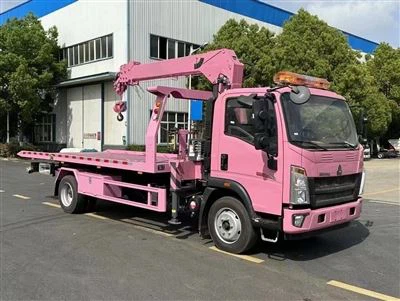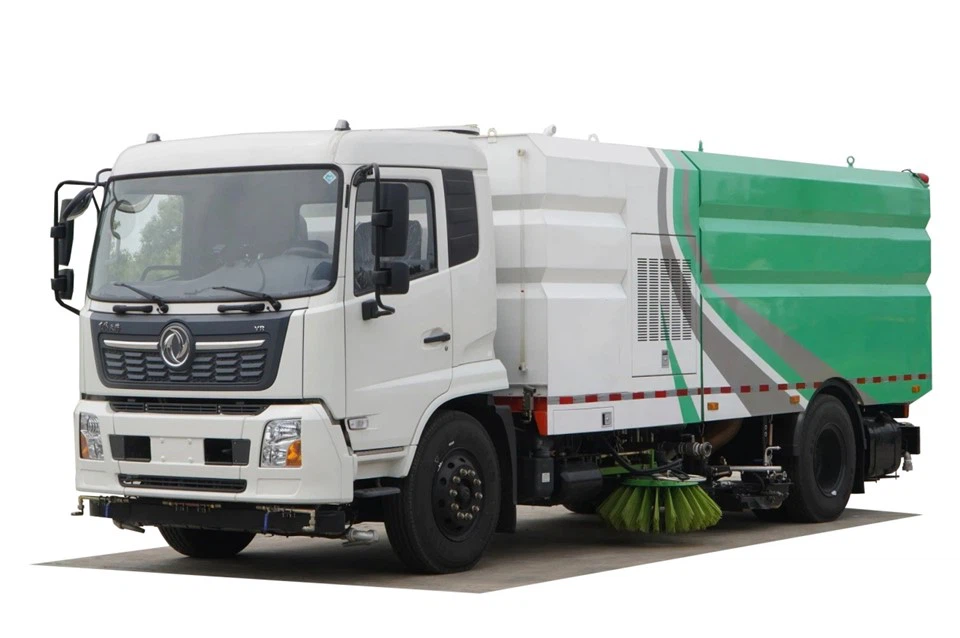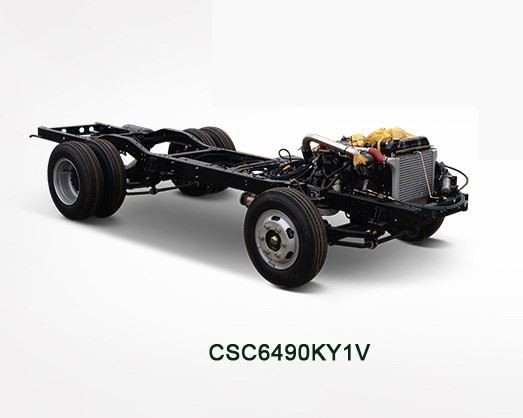Understanding Roll Off Container Trucks: A Comprehensive Guide

Roll off container trucks are essential for transporting large volumes of waste, construction debris, and other materials. These trucks offer efficient, safe, and convenient solutions for various industries, including construction, landscaping, and waste management. In this article, we’ll explore everything you need to know about roll off container trucks, their types, uses, benefits, and much more.
What is a Roll Off Container Truck?
A roll off container truck is a specialized vehicle designed to transport roll-off containers that are used for waste disposal and recycling. These trucks feature a hydraulic system that allows them to easily load and unload the containers, making them a preferred choice for many industries that require efficient waste management solutions.
The Components of a Roll Off Container Truck
Understanding the main components of a roll off container truck can help in recognizing its functionality.
- Truck Chassis: The main body of the truck, which is equipped with a powerful engine and drivetrain to handle heavy loads.
- Hydraulic System: A crucial component that allows the truck to lift and lower the roll-off containers.
- Roll Off Containers: Large metal containers available in various sizes, typically ranging from 10 to 40 yards.
- Cabling System: Connects to the container to facilitate easy loading and unloading.
Types of Roll Off Containers

Roll off containers vary in size and design, making them suitable for different applications. Here are the most common types:
1. Standard Roll Off Containers

These containers are rectangular and are typically used for general waste and debris, such as those from construction sites or home renovations. Standard sizes include:
| Size (Cubic Yards) | Typical Uses |
|---|---|
| 10 | Small renovations or cleanouts |
| 20 | Medium-sized jobs |
| 30 | Large construction sites |
| 40 | Massive renovations or commercial projects |
2. Compacted Roll Off Containers
These containers are designed for specific kinds of waste, such as cardboard or other materials that can be compacted, maximizing the space inside.
3. Open-Top Roll Off Containers
Open-top containers are beneficial for transporting bulky items that cannot fit into standard containers.
4. Enclosed Roll Off Containers
These containers come with lids or walls to protect the contents from weather elements, making them ideal for electronics and sensitive materials.
Common Uses of Roll Off Container Trucks
Roll off container trucks serve various industries, each benefiting from their specific features. Here are some common applications:
1. Construction and Demolition
Contractors utilize roll off containers to dispose of rubble, broken concrete, asphalt, and other construction debris efficiently.
2. Residential Projects
Homeowners often rent roll off containers for home renovations, garage cleanouts, or landscaping projects to simplify waste disposal.
3. Industrial Operations
Factories and industrial sites use roll off containers to manage large quantities of scrap materials and production waste.
4. Special Events
Public events, such as festivals and concerts, require roll off container trucks for effective waste collection and cleanup.
Benefits of Using Roll Off Container Trucks
There are numerous advantages to using roll off container trucks for waste management:
1. Efficiency
These trucks can handle large volumes of waste quickly, reducing the time and effort required for disposal.
2. Safety
Roll off containers help keep work sites organized and reduce safety hazards associated with debris and waste scattered around.
3. Cost-Effective
Using roll off container trucks can often lower disposal costs, especially when dealing with large amounts of waste compared to multiple trips with standard vehicles.
4. Versatility
These trucks can transport various types of waste, making them suitable for a wide range of industries and applications.
How to Choose the Right Roll Off Container Truck
Selecting the right roll off container truck depends on several factors. Consider the following:
1. Size of the Job
The size of your project will dictate the container size needed. Estimate the volume of waste and choose accordingly.
2. Type of Waste
Different types of waste may require specific containers. Make sure to choose a container that aligns with your waste type.
3. Rental Company Requirements
Different rental companies may have varied terms and conditions. Understanding these before renting can save you from unexpected fees.
4. Location
Ensure there is enough space for the container to be placed on your property without obstructing traffic or neighboring properties.
Tips for Renting Roll Off Containers
To make the renting process smoother, here are some tips:
1. Compare Quotes
Don’t settle for the first quote. Compare prices and services from different companies to find the best deal.
2. Understand All Costs
Ensure you understand what is included in the rental price, such as delivery, pickup, disposal fees, and any potential overage charges.
3. Plan for Extra Time
Sometimes projects take longer than anticipated. Consider renting the container for additional time to avoid rush charges.
4. Be Mindful of Weight Limits
Exceeding the weight limit can incur extra charges. Weigh your waste ahead of time to avoid surprises.
Regulations and Best Practices for Roll Off Container Trucks
Using roll off container trucks comes with responsibilities and regulations. Here are key aspects to keep in mind:
1. Local Regulations
Check local laws regarding waste disposal and ensure compliance to avoid fines.
2. Proper Loading Techniques
Distributing Weight Evenly
Make sure to distribute weight evenly in the container to maximize safety and efficiency.
Avoid Hazardous Materials
Do not place hazardous or restricted materials in roll off containers. Consult with your disposal service for guidance.
3. Environmental Considerations
Encourage recycling and proper waste separation to minimize environmental impact.
FAQs About Roll Off Container Trucks
1. How long can I keep a roll off container?
The rental period varies by company, but most allow a week or two. You can often extend if necessary.
2. Can I put anything in a roll off container?
Not all materials can go in a roll off container. Check with your rental company regarding restrictions on hazardous materials and electronic waste.
3. How is the price of renting a roll off container determined?
The price is typically based on the container size, rental duration, location, and type of waste being disposed of.

4. What do I do if the container is full before I’m finished?
You may need to schedule a pickup for an exchange or additional container rental, depending on your project needs.
5. How are roll off containers delivered and picked up?
Delivery and pickup are typically handled by the rental company using their roll off container trucks, which navigate the process using their hydraulic systems.
6. Can I place a roll off container on the street?
Yes, but you may need a permit from your local municipality, especially if it obstructs traffic.
